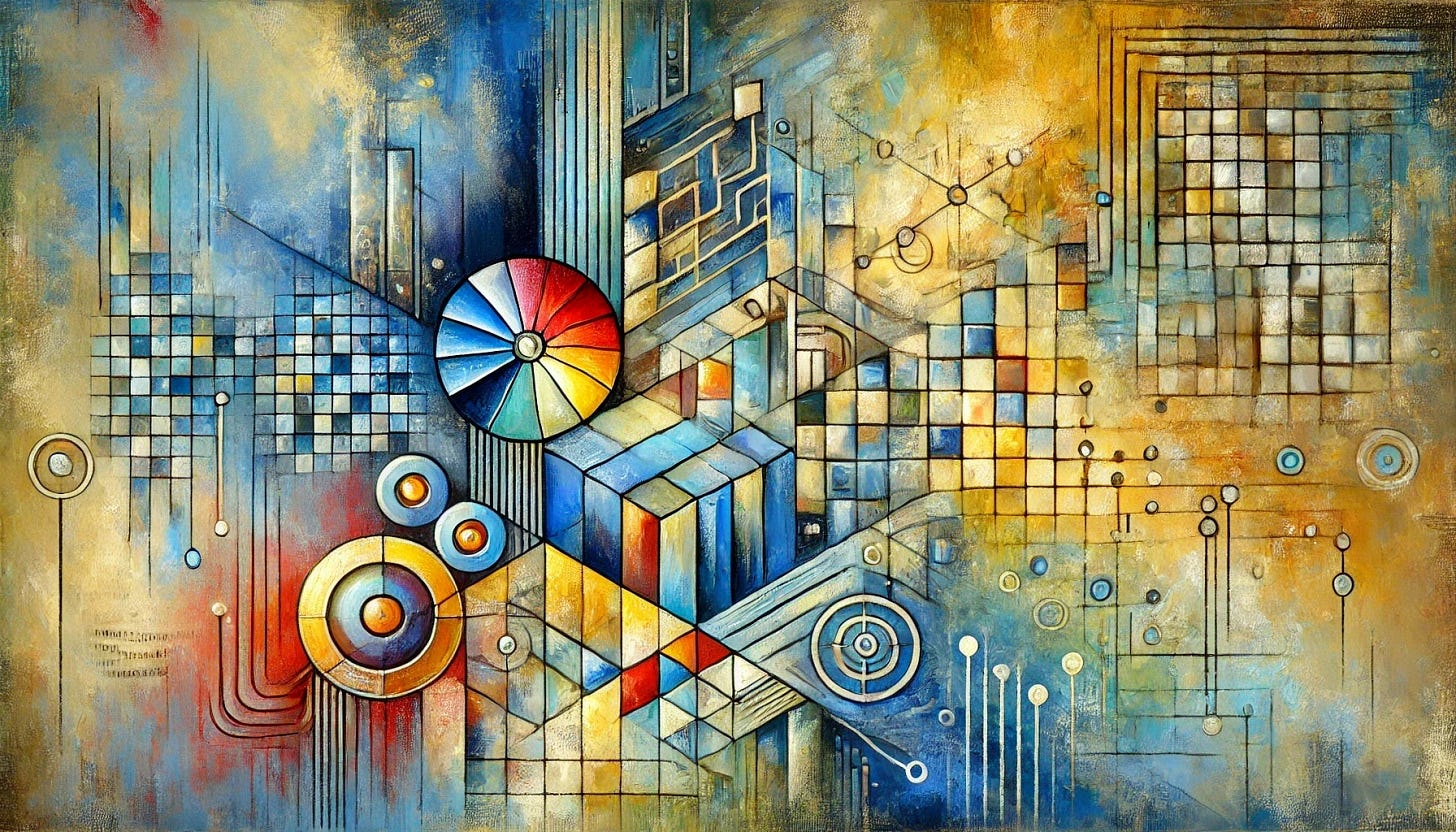There are decades where nothing happens and weeks where decades happen.— Vladimir Ilyich Lenin.
My wife and I finally took our dream vacation to the Maldives earlier this year.
It was as I envisioned: soft white sands, blue skies, and coral reefs near the beach. On my first day, I stood at the water's edge with a snorkel in hand, excitement mingled with hesitation. The crystal-clear water revealed bright patches of coral just a few feet away—a leisurely swim back to safety if needed.
By day four, I confidently glided to the red buoy marking the reef's outer edge, mesmerised by giant stingrays, curious baby sharks, and countless tropical fish, each perfectly adapted to its coral home. The transformation from cautious paddler to confident explorer happened so naturally that I barely noticed it.
I must embrace a similar shift with AI and approach it with the same sense of wonder and intense curiosity.
There are many compelling reasons to do so, and here is a list of my New Year's AI resolutions plan for the year ahead.
Fait Accompli: No more waiting.
We are in one of those transformative periods Lenin described, where years of technological evolution are compressed into months. OpenAI’s “12 Days of Shipmas” release in December introduced tools like advanced voice, video, and writing capabilities in just weeks—what might have taken months before.
The future is here. If I were to wait for things to "settle down," I realised I would risk being left behind, as there would be no return to pre-AI working.
Think like Cousteau
"The best way to observe a fish is to become a fish." — Jacques Cousteau.
Jacques Cousteau invented the Aqua-Lung, transforming underwater exploration from a specialised pursuit to a recreational activity. Scuba divers could freely explore depths up to 130 feet for an hour at a time, twice what they could manage earlier in a helmeted suit with air hoses connected to the surface.
With AI, we have the same opportunity and freedom to explore new depths, seemingly without the constraints of Cousteau's Aqua-Lung.
How far and deep I will go depends on my curiosity and drive, guided by my childhood hero's Cousteau principles - careful observation, the right tools, and the courage to venture beyond familiar waters.
Learn the new 3 R's.
Easy reading is damn hard writing. Ray Bradbury.
In our rapidly evolving world, expertise has become less of a destination and more of a continuous journey. The traditional, aspirational markers of mastery—a PhD, an MCC certification( Master Certified Coach), or decades of experience—are milestones in our journey as lifelong learners.
The traditional skills of Reading, Writing, and Arithmetic have transformed into the new Three Rs: Reading, Writing, and Reasoning, each enhanced by AI. We develop these capabilities by learning how to tinker with AI; it is like walking on an escalator whose speed changes as the AI's capabilities become more powerful.
We didn’t have that choice earlier.
Reading Reimagined
Writing comes from reading, and reading is the finest teacher of how to write. Annie Proulx
When I read, I actively engage with the author. I ask AI basic questions to simplify complex ideas and increase my understanding, and AI, in turn, suggests a few more questions to nudge me to understand different perspectives. In the process, I uncover hidden connections and even challenge my initial assumptions. Although it takes longer to finish a book, it's much more enjoyable, like a great conversation. I’ve realised I don't always need to read the entire book to complete it; I use AI to focus on the critical parts while I skim or skip the rest.
Writing is Ideating.
Writing with AI is about generating ideas—lots of them—and not about perfecting the first draft. It is no longer a solitary activity but a collaborative one. AI helps me test new directions, try new structures, and buttress my argument without silencing my voice.
One of my favourite dialogues with AI starts with this question:” Here are my initial thoughts; what opposing viewpoints do I need to address?”
It’s like always having a trusted editor on call who is supportive yet not intimidating.
AI works best in terms of searching and fetching ideas. Like a dutiful drone, a well-designed prompt fills your basket with many ideas: some great, some not so much. What you do with that basket is up to you.
Your AI is a great wordsmith. On first reading, AI-generated prose is impressive, with different skeins based on your instructions—erudite, engaging, or professional. But as you reflect more deeply, you will find the prose empty, a word salad.
I have realised that AI provides a valuable scaffolding for my ideas, but I will always have to write and have the last word.
Reasoning Through Dialogue
When I think critically, AI helps me test my assumptions, explore ideas, and consider different outcomes. It broadens my thinking without replacing it, making my thoughts more explicit.
Practice Co-Intelligence
This year, I plan to revisit Ethan Mollick's advice in his brilliant book Co Intelligence to understand better and work with AI's jagged edge.
Practising co-intelligence for me means that for each AI interaction, I will start with clear intent:
State the specific goal- what do you want?
Request multiple perspectives
Challenge assumptions
Verify conclusions independently
I will be disciplined about this approach to ensure that AI enhances rather than diminishes my capabilities.
New Year, New You
And the oak tree and the cypress grow not in each other's shadow. - Kahlil Gibran
In his New Year, New You article, Oliver Burkeman encourages us to focus on "radical doability"—embracing small, achievable changes instead of seeking perfection.
I’ll apply this mindset to AI. Rather than mastering it all at once, I’ll start small and take deliberate steps to integrate AI into my work.
My goal for this year is to build a sustainable partnership with tools like Claude and ChatGPT by verifying AI outputs, refining suggestions, and staying critical,
The water is warm, the reef is full of surprises, and I am ready to dive in with my AI partner.
Like Cousteau, I’ll dive deep, guided by the right tools, clear intent, and curiosity.
That will be deeply satisfying.







